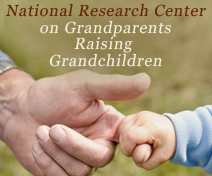ScholarWorks > Institutes & Centers > Grandparents Raising Grandchildren > GrandFamilies > Vol. 1 > Iss. 1 (2014)
Abstract
Grandparent caregiving is a growing phenomenon in both the United States and Canada. The burgeoning research on the topic has focused on custodial grandparents with an emphasis on negative aspects including poor physical and mental health outcomes for older adults. Less attention has been paid to the rewards of grandparent caregiving and to different intensities of caregiving provision. This grounded theory qualitative study of 16 Black Caribbean Canadian grandmothers sought to address this gap in the literature. We examined three types of grandparent caregivers: custodial grandparents (n=7), co-parent grandparents (n=5) and extensive babysitters (n=4). The average age of the children varied by caregiver modality: custodial grandmothers cared for slighter older children (mean age 10.4 years), followed by co-parent grandmothers (mean age of 8.1 years). Extensive babysitter grandmothers cared for younger children (mean age of 6.6 years). The three types of caregiving grandparents reported substantial similarities in their perceptions of the rewards of caregiving. Results reveal five main themes: (1) Grandmothers’ responsibilities and pride of care giving; (2) Grandmothers keeping the family close together and safe; (3) Mutual respect between grandmothers and grandchildren; (4) Caregiving provides grandmothers with a sense of purpose; and (5) Grandchildren are fun! Implications of these findings in light of Erikson’s concept of generativity, will be discussed.
Recommended Citation
Fuller-Thomson, E.,
Serbinski, S.,
McCormack, L.
(2014). The rewards of caring for grandchildren: Black Canadian grandmothers who are custodial parents, co-parents, and extensive babysitters. GrandFamilies: The Contemporary Journal of Research, Practice and Policy, 1 (1).
Available at: https://scholarworks.wmich.edu/grandfamilies/vol1/iss1/2
